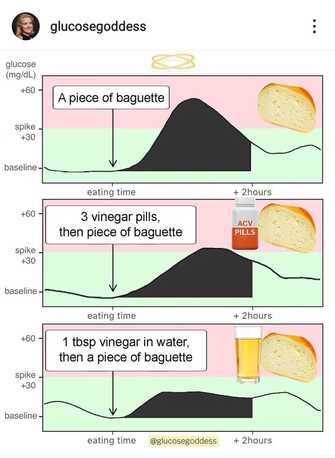
Have you ever felt that you are doing all the right things for your health and yet lab values, measurements, or your overall mood just don't correlate with your efforts? Enter Stress! Stress has an effect on glucose levels which is one area my dietitian provided extra insight. Before we get to her feedback, we must recognize there are certain stressors to the body that are valuable; these are called hormetic stressors. The principle of stress-response hormesis is captured by the popular maxim from 19th-century German philosopher, Friedrich Nietzsche, "That which does not kill us makes us stronger!" (a great running song too thanks to Kelly Clarkson!) Things like cold exposure, heat exposure, regular, moderate intensity exercise, or even dietary fasting are designed to build resiliency within the body. There are interesting studies linking hormetic stressors to longevity and better health. In general, these stressors, for instance a sauna, ice bath, period of fasting, or regular exercise. may exert a mild sort of damage ("oxidative stress") to the body which then creates favorable adaptions that protect the body against more severe stress. In the right dose, certain types of stress, can actually benefit your health; one of the reasons we are encouraged to exercise! Hormetic stress is that "sweet spot" where stress could be beneficial. During a hot sauna, intense exercise, cold immersion or fasting, one will generally see their glucose levels temporarilry rise. When a body encounters stress, a flood of hormones are released to help one react to the stress. You want that sudden increase in glucose to run away from the bear! With short-term sources of controlled stress, like cold immersion, hormones can boost your energy and help your body repair tissues. The problem occurs when short-term becomes chronic stress; this can expose you to excess hormones and put your body in a state of dysfunction. Hormetic stressors are short-lived whereas chronic stress tends to degrade and disrupt the body's natural function. Often, we have superb control over hormetic stressors but what we need are solutions to combat the chronic stress that for many is a hallmark of modern life. Whether perceived by the mind or a true reality, our brain interprets that the body is under stress.

Hi Stephanie, My primary daily stress comes only from my brain! Sometimes my sugar/cravings are just to deflect/distract my brain from worry that I conjure up in my head. Reading less news on social media would help. My husband will be traveling from Wed-Sunday and I will feel more relaxed ironically with the house to myself and knowing he is having fun golfing with his friends. Any marriage/relationship stress is more chronic than anything acute; just a by-product of being married 25 years and not always effectively resolving conflicts. My new experiment: See if my glucose levels decrease when I have the house to myself. :) Any mindfulness/intuitive strategies are always appreciated.
Hey Tiffany! So stress can have a profound impact on our glucose values. When our body or mind is under stress, it's perceived as a threat. The body copes with threats by doing two things: 1) increasing glucose output/release from the liver, and 2) reducing insulin sensitivity. These two things combined can cause more glucose to stay in the blood, an important strategy in case we actually needed that energy as fuel to run from the threat (say if that threat was a lion). This response is evolutionary and incredibly important, but the type of stressors we have today don't necessarily require this additional fuel. The result can be higher glucose values consistently as well as just in the moment. Let me share a my list of cortisol-lowering tips below, and then we can continue to layer on more intuitive eating/mindfulness tactics as we go!
- Breathing techniques - one of the most common is the 4-7-8. Here is a short video explaining further. This actually stimulates your nervous system to relax, and if practiced a few times throughout the day and especially before bed, it can really help a lot of people.
- Meditation - similar to exercise, it takes some time to build it into a habit but once the habit is formed it becomes much easier. If you are new to meditation, Simple Habit and Headspace are two apps I recommend.
- Daily outdoor exposure - Even just 20 minutes of outdoor exposure per day has been shown to lower cortisol levels.
- Avoid screens in the evening. If you have to be around screens late at night, you may want to consider some blue light blocking glasses.
- Incorporate routines and habits into your daily lifestyle that help you relax and have fun This cannot be more understated! Include regular social interactions with loved ones and time for hobbies.
- Potential supplements (we always want to use these after trying lifestyle changes) - ashwagandha, omega-3 fatty acids, ginseng, curcumin, lemon balm, passion flower.

Thanks for following along. One of my on-going experiments/challenges this past week, recommended by Stephanie, has been to simply eat a nutritious meal every 4 hours without any snacks in between and boost my protein prior to bed. Incorporating a few simple hacks from the Glucose Goddess, like a 10-minute walk after each meal, adding water and apple-cider vinegar prior to meals, and avoiding the "grazing" mentality have all reflected positively on my glucose charts and graphs.If you have any questions please let me know! I replace this current sensor on Monday with a new one for the remaining two weeks. Enjoy the weekend!
 RSS Feed
RSS Feed